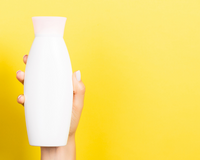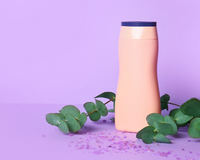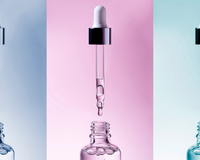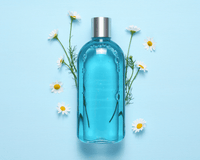Black hair care products black owned, natural hair comes in a variety of textures, each of which is stunning—indeed, iconic! The freedom and versatility that our coils embody are truly powerful, whether we choose to wear our Afros and voluminous curls in all of their glory, switch up our look with a sleek blowout and silk press, or give our strands a rest by wearing protective styles like braids, twists, and hair extensions. Natural hair hasn't always been welcomed and given a place at the table with conventional hair care businesses.
Finding products that actually nourished curly and kinkier hair types used to be like digging for a needle in a haystack—it was nearly impossible. Thankfully, a plethora of Black-owned hair-care firms is rapidly coming on the scene, delivering top-tier solutions tailored to the demands of textured tresses. After all, who better than individuals of color to speak about the subtleties of kinks and coils?
The name is self-explanatory. 4C Only was designed to meet the unique requirements of the tightest curl pattern on the hair texture range. The brand is on a mission to simplify wash days for kinky textures and breathe new life into the hair-care routine for tightly coiled strands with the debut of its first collection in 2020. You may be familiar with the difficulties of attempting to find the correct product to adequately hydrate your 4C hair. Products claim to be suitable for all hair types, however, this is not the case.
Hair Care Routine With Black Hair Care Products Black Owned
Kinky hair shrinkage is a genuine thing. While this should come as no surprise to anybody with Afro-textured or black hair, caring for natural hair is a different story, since natural hair requires weekly maintenance. Awash, conditioning, and leave-in conditioner are all part of hair treatment. First and foremost, before we get into the nitty-gritty of care for your priceless strands, it's critical to determine which curl pattern you have. The natural Afro range is extensive, from small waves to very kinky hair.
It starts with the kinkiest, curliest, fluffiest 'fro you can grow and progresses to the kinkiest, curliest, fluffiest 'fro you can grow. Knowing what sort of curls you have will help you tailor your hair treatment. Heavier, creamier products may be required for coarser, crazier hair. Protecting your Afro with the correct preventative measures and products will keep it strong and healthy, allowing for faster natural hair development. An Afro might be challenging to maintain, but with a little patience and good care, it can become your crowning pride. Maintain your Afro's health by following a stringent weekly wash-and-conditioning program.
Black hair, whether natural, relaxed, or braided, is stunning. Moisture and careful treatment are essential for healthy, attractive hair. Black hair might grow dry and brittle if they aren't used. It takes a little more effort to care for black hair, but the smooth, silky, and healthy results are well worth it.
Use Shampoo Once In A Week
Whether it's natural, relaxed, or braided, black hair is stunning. Moisture and careful treatment are essential for attractive, healthy hair. Black hair might become dry and brittle if it isn't given these nutrients. It takes a little additional effort to care for black hair, but the smooth, silky, and healthy results are well worth it. Once every one to two weeks, wash your hair. The more frequently you wash your hair, the more moisture it loses. Hair becomes dry and brittle as a result of this. Hair should be washed every 7 to 10 days, although it can be washed just once every 14 days. This will help avoid product buildup and dryness.
If you can't locate an ethnic hair shampoo and conditioner, use a moisturizing shampoo for dry hair instead. Apply a hydrating conditioner after that.
If you need to wash your hair more frequently, dilute your shampoo with half water and half shampoo.
Apply Conditioner Most Of The Week
Every 3 to 5 days, only use conditioner to wash your hair. "Co-washing" is another term for this. It will keep your hair moisturized and manageable. Natural curls benefit from co-washing since it makes the hair less frizzy, more defined, and moisturized. With a natural oil of your choice, you may help seal in the moisture even more. Use a deep conditioning mask once or twice a month to amp things up a notch. Concentrate the conditioner on the ends of your hair and avoid the scalp. If you apply conditioner to your scalp, your hair will seem oily. It will also make your strands heavier.
Combine Your Conditioner With An Essential Oil
Use a lightweight, hydrating conditioner with essential oils. Grapeseed oil, for example, is more easily absorbed by hair than lanolin, which would clog and weigh hair down. Lightweight oils will nourish and shine your hair without weighing it down. Avoid using silicones and sulfates-containing products. Silicones are excellent for smoothing hair, but they can only be removed using sulfates, a harsh cleaning solution that causes hair to become dry. If you don't properly remove the silicones from your hair, it will build-up to the point where it looks lifeless, oily, and lanky.
Fortunately, there are a variety of alternatives to silicones, such as nourishing treatments and coconut oil, to make your hair lovely and silky. These products may be readily removed from your hair without causing it to become dry or brittle.
Consider employing "organic" ingredients instead of "natural" ones in your products. From growing through harvesting, organic goods are tightly monitored. This implies that foods like avocado, coconut, and shea butter were farmed without the use of dangerous chemicals, antibiotics, or pesticides to people and animals. These hazardous compounds have the potential to damage your hair. Corporations use the term "natural" quite loosely. Because it contains an orange flavor that was originally a fruit ingredient, an orange soda can be considered natural. Like "petrolatum," high fructose corn syrup is deemed "natural."
Hair Styling Tips For Black Hair
Using a broad tooth comb, comb your hair carefully. Always begin at the ends of your hair and work your way down; never start at the roots. Brushes will simply make your hair frizzy, so avoid them. Finally, instead of combing your hair every day, untangle it with your fingers as required. Excessive combing can cause your hair to fall out. Before you untangle your hair, make sure it's somewhat moist. Wet hair is quite susceptible, so if you've just washed it, let it air dry for a few minutes first.









